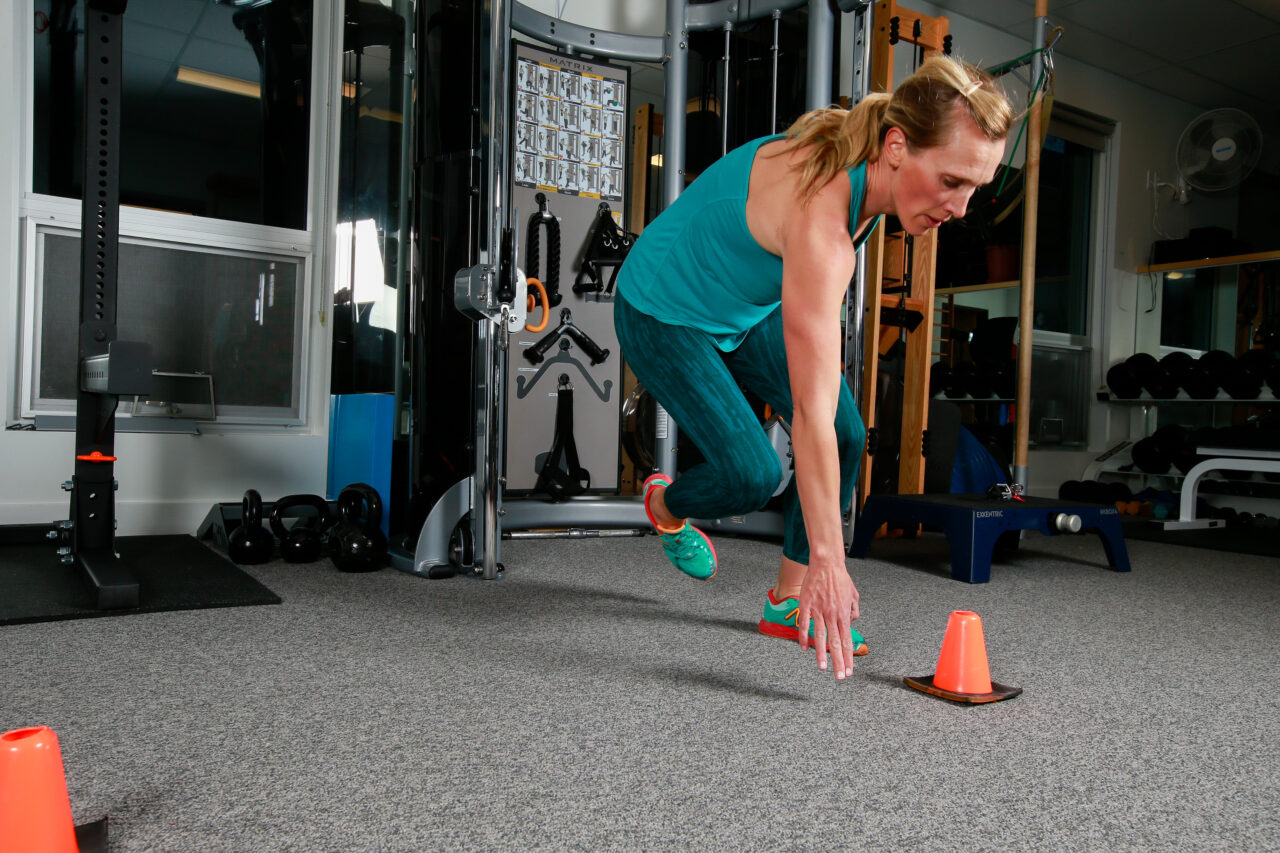By Kristin Carpenter, PT, DPT, OCS, FAAOMPT
The hormonal decline resulting from the menopausal transition (ie: perimenopause) is characterized by detrimental impacts on health including: increased cardiometabolic risk factors (insulin resistance, Type II diabetes, increased central adiposity, weight gain), reduced mental and physical health (depression, loss of lean muscle mass, reduced bone density and increased risk for falls). The benefits of exercise on multiple domains of health has been extensively studied and documented and it could be argued that exercise during the peri- and postmenopausal years may be the most important time in a woman’s life to engage in exercise given the health challenges faced during this period.
Paradoxically, physical activity and exercise is known to decline during perimenopause and into the post-menopausal years despite dramatic potential to reduce the unpleasant symptoms and health risks during this period of a woman’s life.
3 types of exercise that are beneficial during perimenopause:
- Strength training: Helps counteract muscle loss and maintain bone health. Increases basal metabolic rate as lean mass increases. Mend recommendation – high intensity strength training or approximately 80% of 1 repetition maximum (see more on barriers to strength training for women)
- Aerobic exercise: Enhances cardiovascular health and supports weight management. Mend recommendation – high intensity interval or sprint interval training for women in perimenopause or postmenopause.
- Balance and flexibility exercises: Reduce the risk of falls and improve joint mobility.
3 unpleasant perimenopausal symptoms exercise (specifically resistance and aerobic exercise) can help with:
- Abdominal adiposity: (ie: belly fat). Participation in higher levels of vigorous physical activity was associated with lower % body fat and smaller waist circumference.
- Sleep disturbance: There appears to be a dose dependent relationship between physical activity and sleep. Ie: the more you exercise, the better your quality of sleep
- Improved psychosocial health: Women meeting exercise guidelines demonstrated lower risk of depressive symptoms.
3 ways the Mend Women’s Class addresses barriers to participation in high intensity strength and interval training:
- Safety first: Each class is supervised by a Doctor of Physical Therapy and an expert trainer with limited class size to ensure appropriate form with exercise and to appropriate management of pathology such as low back or joint pain with a licensed medical professional present in class.
- Equipment and education necessary to dose exercise appropriately for health benefits: We have partnered with a local CrossFit gym to ensure we have the space and equipment to deliver effective exercise programming. Our coaching is designed to help you gradually progress to high intensity and understand the principles of load and intensity in your training.
- Camaraderie: Our class is currently composed of women in their 30s-70s with a wide variety of ability levels and goals including improving overall fitness, weight loss, postpartum recovery, longevity, bone health or injury prevention.
Classes take place at Koda CrossFit. 740 S. Pierce Ave. #5. Louisville, CO 80027.
Women’s Class Schedule 2024:
- Tuesday: 7:30am, 9:00am, 4:30pm
- Thursday 7:30am, 4:30pm
- Friday 9:00am, 10:00am
To try a free class, please contact us.
Reference: Hulteen et al. Detrimental Changes in Health during Menopause: The Role of Physical Activity. Int J Sports Med. 2023.

